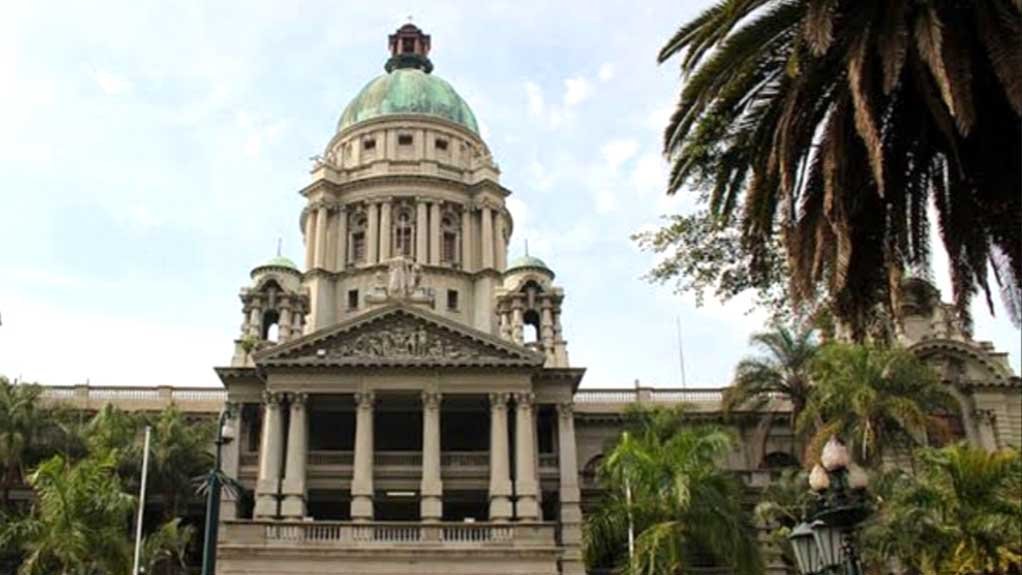The Durban ratepayers group that withheld money from the eThekwini Metro as a form of protest, lost a court bid to prevent the City from disconnecting the services of its members.
In a judgment handed down in the KwaZulu-Natal High Court in Durban on Friday afternoon, the court ruled against the Westville Ratepayers Association (WRA), which also goes by the name eThekwini Ratepayers Protest Movement (ERPM).
In court papers, the movement was referred to as WRA, which has about 13 civic groups under its banner.
The WRA turned to the court when the utilities of five members were cut around 8 September, after they embarked on the rates boycott.
News24 understands that since then, one member's utilities were turned back on.
In handing down judgment, Judge Jabu Thobela-Mkhulisi said one of the fundamental aspects she looked at was whether a dispute relating to the Municipal Systems Act was pending between the WRA and the city.
"It is common cause that the only service the municipality disconnected is the supply of electricity. The individual applicants still receive water, sewage disposal and refuse removal," she said.
Thobela-Mkhulisi said the WRA filed a dispute under incorrect legal principles. "The association is embarking on a payment boycott whilst demanding the provision of services. This is an entirely different matter, one that does not fall within Section 102 (2) [municipal systems act] and to which different legal principles apply."
She further stated there was no evidence to back the assertion that the WRA's members were selectively targeted for their utilities to be cut.
"The case on selective enforcement is at best speculative and unsupported by the association's own court papers which contain a list of its members that runs to four pages."
Appeal on the cards
Asad Gaffar, one of the founding leaders of the WRA, said they would appeal the judgment.
"We most certainly will appeal this. We are meeting with our legal team on Monday and the fight will continue. Our journey to challenge the laws that give overreaching powers to a municipality has begun."
He said WRA embarked on its campaign "with a full understanding of the law and the challenges it would face".
"We were never expecting a victory in the first round. In fact, we openly stated, that should we lose, we will gladly hand over any money being diverted back to the city."
Gaffar called on the public to engage in more active citizenry.
"What we need more than ever are people willing to want this change. Not just words but action. Not sitting on the sidelines and giving running commentary. We need real people wanting real change. Change not just for ratepayers, but for every person in this city," he said.
eThekwini Mayor Mxolisi Kaunda said the judgment was an important victory.
"This judgment validates the stance of the municipality in this matter. It also confirms the view that ratepayer associations cannot take the law into their own hands and withhold payments that are lawfully due to the city."
Kaunda added that the City would "continue to engage with ratepayers associations to find solutions to service delivery challenges".
eThekwini failures
eThekwini faced a number of growing service delivery challenges in recent years.
It was flagged in an SA Human Rights Commission (SAHRC) report, along with several other municipalities, for violating human rights in relation to water supply.
The SAHRC report, "KZN Water Inquiry", which investigated the state of water and its management in the province between 15 August 2022 and 19 August 2022, was released in September.
The municipality reported to the SAHRC that the impact of theft and vandalism of infrastructure had led to a disruption in services.
According to the City, when plumbers and electricians were sent out, they had to be accompanied by security guards, which ate into the budget.
eThekwini spends R900-million on security and said the police were "not responding to violent protest action, let alone, these security issues".
The SAHRC report also noted the metro was using "forced disruption in supply to conserve water". It further stated that eThekwini was not properly using its funds to maintain infrastructure.
"Money is being taken from fee-paying customers in formal settlements, without maintaining these services, to finance non-revenue residents in informal settlements," the report stated.
eThekwini also has a significant debtors' book to service. It had to take out a further loan of R1.5-billion in 2022 and now has a total loan of R10-billion.
Of the 23 wastewater plants and treatment works in eThekwini, 17 have run to failure and don't meet the necessary specifications, placing a burden on the City. The plants were designed for small-scale usage and are aging.
In February, the Auditor-General's office lambasted the City for the 2021/22 financial year.
The AG reported that the City had water distribution losses, which sat at 56.2%, meaning the City was losing more than half of its water supply. Water losses had increased over a five-year period from 36.85% in the 2017/18 period, to 56.2% currently.
The City purchased 401 527 498kl of water, but only sold 175 787 719kl.
EMAIL THIS ARTICLE SAVE THIS ARTICLE
To subscribe email subscriptions@creamermedia.co.za or click here
To advertise email advertising@creamermedia.co.za or click here











